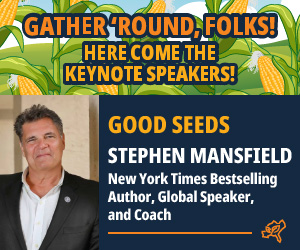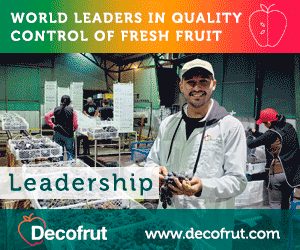IP grape varieties make headway for Fruitico in Western Australia

The entry of Californian grapes three years ago has forced Western Australia's hand, with groups like Fruitico moving into better tasting, higher yielding varieties.
"It wasn't uncommon to be selling grapes for AUD$20 (US$15.07) a kilo (2.2lbs) four or five years ago, and I think consumers accepted that’s what it was," Fruitico executive director Ben Tanner told www.freshfruitportal.com during the Amsterdam Produce Show earlier this month.
But that price point was before the Californian competition came on the scene.
"For 100 years it’s [Western Australia] been protected from every other supply region in the world, including the rest of Australia – I think honestly that the protectionism has forced a few inefficiencies," he said.
"It hasn't encouraged innovation, it hasn’t encouraged people to reinvest back, and three years ago Californian grapes had the market opened up and our customers for the first time started to see really good quality, really good value."
When the Californian fruit came along he said consumers were starting to see price points at AUD$7-8 (US$5.20-6) a kilo, and they haven't looked back since. Now, with this change combined with the state's mining boom falling off, demand has dropped locally for anything above AUD$7 per kilo.
"That challenges a lot of growers who haven’t reinvested, who have small plantings of five or 10 hectares," Tanner said.
"We've got the view that we’re in grapes, we’re growers and marketers, and we need to get competitive with growers from around the world and Australia to stay in the game. That’s why we’ve decided to scale up."
Fruitico was formed as a joint venture between Fresh Produce Group-Western Australia, where Tanner is general manager, and grower Roger Fahl, in a bid take advantage of "what was a shrinking industry in Western Australian table grapes".
"So we partnered up with the best table grape grower in Western Australia who shared similar ideals about IP and growing good varieties," Tanner said.
"The idea with Fruitico was to select superior IP (intellectual property) from around the world - whether it be from Sun World program, IFG or Sheehan Genetics - to find he best red, white and black seedless grapes in a series and focus on high-flavor, sweet varieties that have high yield for growing.
"We invested cash and Roger invested land and his existing capital, and we’re in an aggressive growth stage now planting new varieties to first service the Western Australian market, and secondly to service our export customers in Asia right through from Indonesia and China."
He said Western Australian growers had a fairly good advantage supplying Asia, compared to other Southern Hemisphere suppliers including their compatriots on the eastern seaboard.
"Being on the doorstep of Asia in Perth, shipping is actually a lot quicker than the other side of the country. We can get to Indonesia by boat in seven days, and it’s not too much longer up to China and Hong Kong," Tanner said.
The executive pointed out that on a recent visit to China he saw a lot of popularity for Crimson Seedless, as well as the new Black Sweet Sapphire from IFG, but there weren't a lot of white grapes in the market.
"And when I’ve asked why people have said it’s because they like grapes with long shelf life and low shatter," he said.
"I believe that they’ve only been exposed to varieties such as Thompson which have a lot of shatter and a limited life, so we’re hoping that with some of the newer varieties like Autumn Crisp (from Sun World) that are fairly sturdy, they’ll change their preferences to buying more white grapes as well.
"10 years ago you were lucky to sell Red Globes there - now they want seedless and they’re willing to pay for it."
He said the company had 30 hectares of existing production with Sun World's Adora seedless as the predominant white variety, as well as some Red Globes and Crimsons.
"Some of the newer varieties – Sweet Celebration, Sweet Sapphire from IFG - they’re two years old now so we’ve only had one small commercial crop," Tanner said.
"They’re quite fruitful so full production comes a lot quicker, and once we plant we’re into full production in two to three years.
"We’ve just finished for us a large commercial planting of 40 hectares of Autumn Crisp from the Sun World program. We expect very good things out of that from what we’ve seen around the world."
He said the Autumn Crisp was naturally large and size, very crispy and crunchy and with great flavor with a "bit of muscat to it".
"Everywhere I go it seems to have this common characteristic of being extremely fruitful and large-sized with good eating. The good thing about it is it grows fruitful naturally so you don’t have to do too much to it.
"We’ve finished planting – we’ll have a little bit of production next year, but within a couple of years we’ll have over 100,000 cartons of that.
"And our supply partners further north of Perth, we’re helping them put some more in the ground, so we’ll have production of Autumn Crisp from December through till May, so uninterrupted supply."
So as Perth has such an advantage into Asia, does that mean the majority of exports into the region will be sent via seafreight?
"Not necessarily. We’ve got a good opportunity with our northern production coming online online in December, so once the American supply starts to dry up in these markets there’s a good airfreight opportunity in that December and January window – it’s really a little bit of a gap before Peru and Chile get started as well.
"There’s an opportunity for airfreight followed by seafreight."
In white seedless, Fruitico expects volume to grow from 45,000 boxes of 10kg this 2016-17 season to 147,000 by 2019-20, along with significant rises as well in black seedless (15,000 to 55,800) and red seedless (76,200 to 129,600).




































